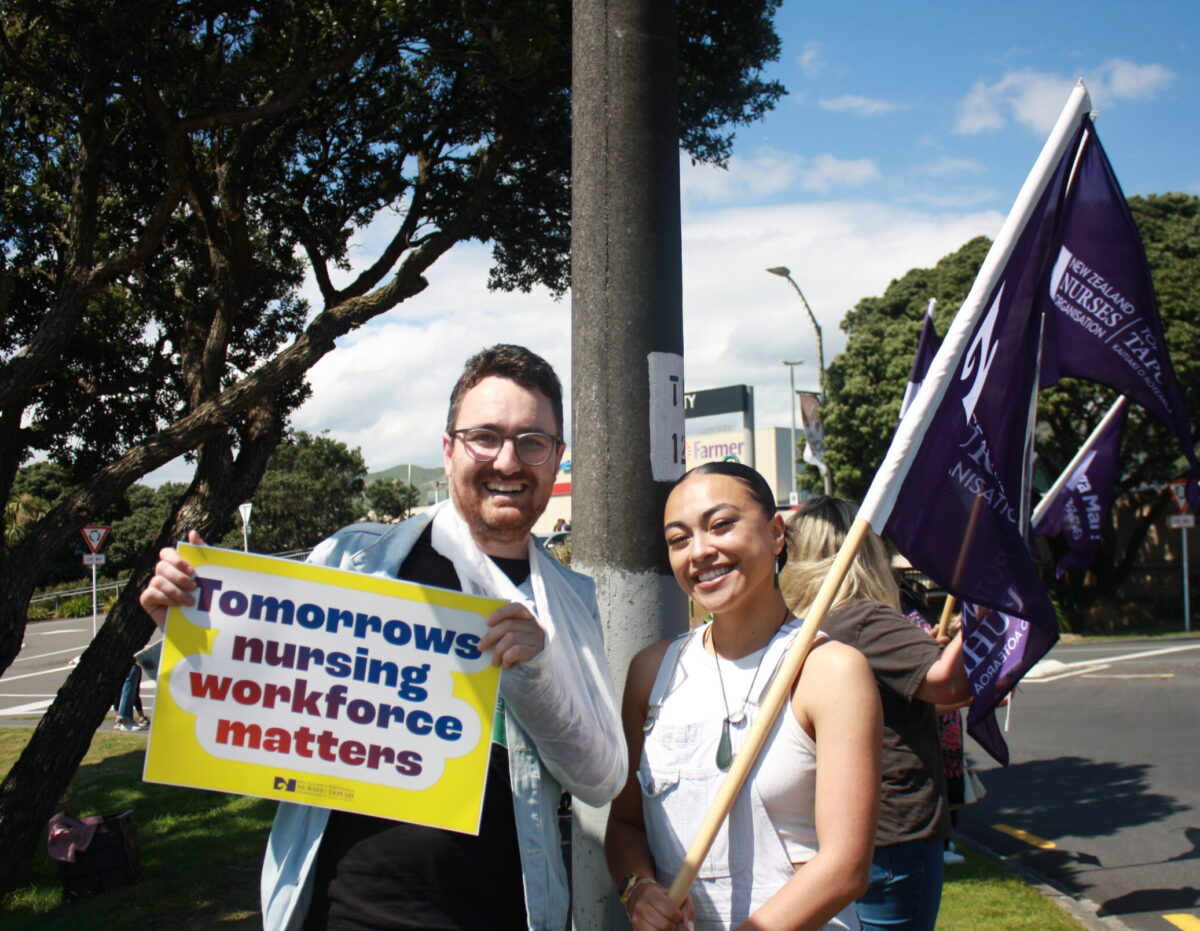“The mental and financial struggle is real. You have to choose between putting gas in the car, parking expenses to get to placement or dinner — or can my kid get a pair of school shoes,” Wellington first-year student Tomairangi Pahina told Kaitiaki at Saturday’s rally in Porirua.
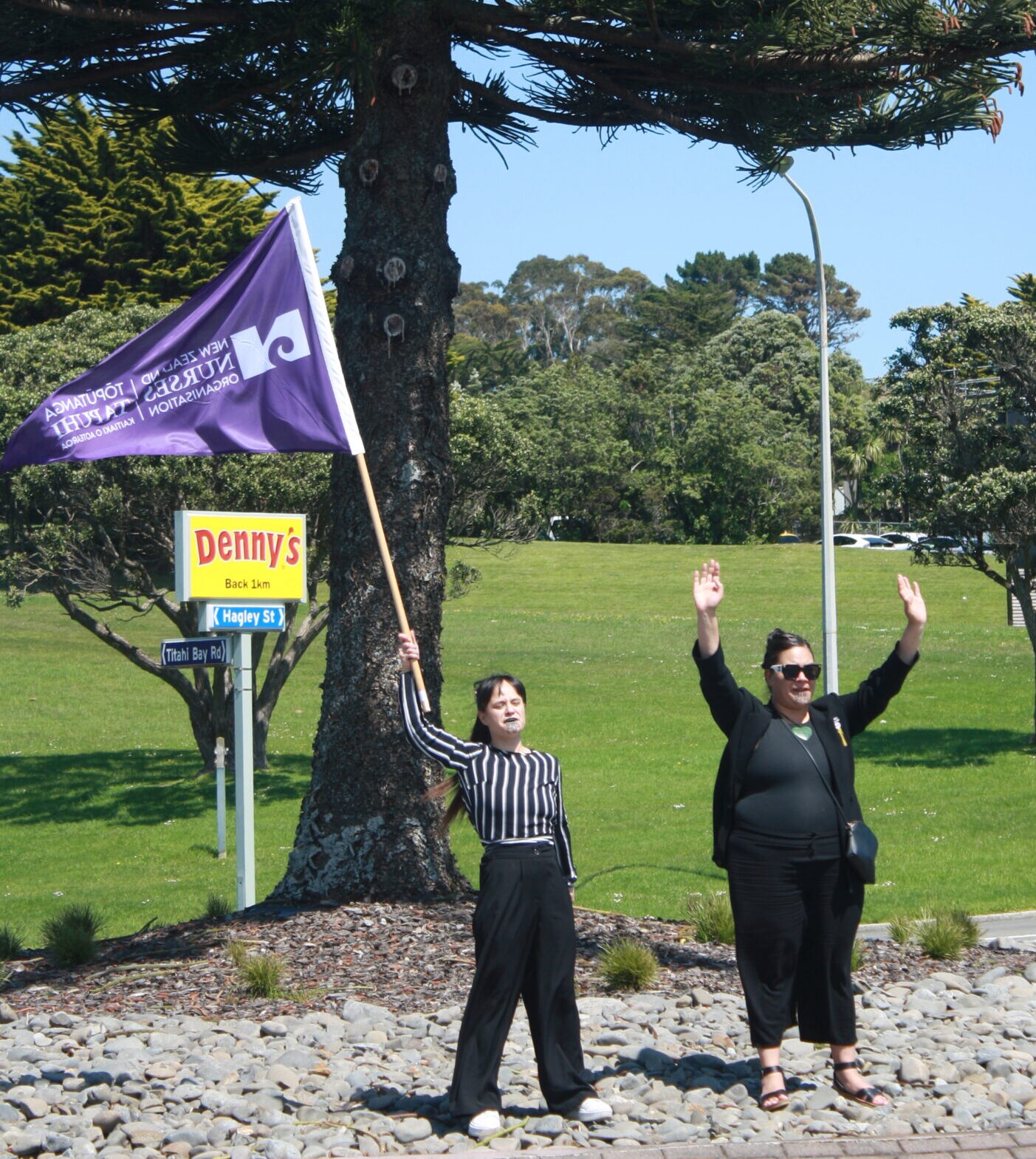
Money is the biggest pressure for nursing students, one in three of whom drop out, NZNO student research has found. A bachelor of nursing (BN) requires 1000 hours of clinical experience, with up to 12 continuous weeks in the third year.
Whitireia third-year bachelor of nursing Māori (BNM) student Justyce Rikihana said she had just finished her final clinical placement which meant nine weeks where she couldn’t juggle her paid work.
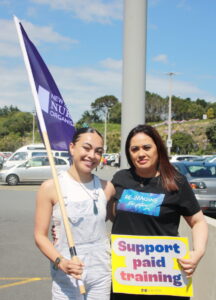
Juggling the lengthy placements was almost impossible without help — especially for many “young mamas”, she said.
‘Our mahi deserves to be paid because it is a struggle. We sacrifice our jobs and do this degree for the betterment of our tamariki and mokopuna.’
Pahina agreed it was a “constant struggle” of trying to balance classroom learning and clinical placements, alongside trying to live. “It’s so hard and mentally draining.”
“You are required to do placements and they’re long — so there’s no time for students to work.”
Students shouldn’t have to worry how to even get to placement, but just be able to focus on the clinical learning, Pahina said.
First-year Porirua nursing student Liz Brewer said students definitely needed some kind of payment on placement, especially as they became longer. “Maybe not first year, but second and third, because it’s really hard to work outside them.”
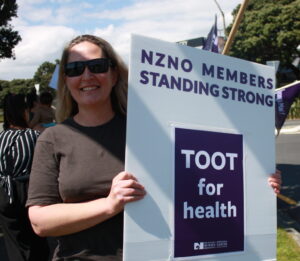
Porirua student Ngarissa Ariki said there was a “strong line” of nurses in her whānau who had inspired her to also become a nurse. “Paid training will definitely help — especially because I’m a super-mama of three.”
Whitireia first-year student Amelia Taurima said she had two more years to go and being paid for placements would make a huge difference.
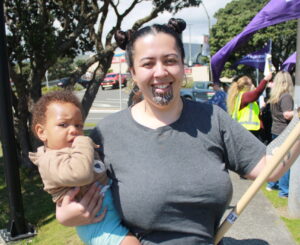
“Our mahi deserves to be paid because it is a struggle. We sacrifice our jobs and do this degree for the betterment of our tamariki and mokopuna.”
‘We see them on placement five days a week, then they go and do another job. Where is the time for family?’
NZNO — Tōpūtanga Tapuhi Kaitiaki o Aotearoa tumu whakarae Tracy Black, said she had travelled from Whakatāne to be at the Porirua rally, because she believed in the future of the workforce.
“The struggles haven’t changed since I was a student, five years ago,” she said.
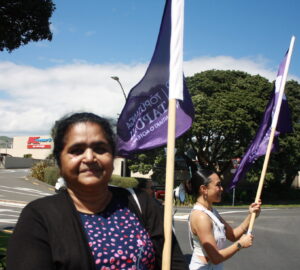
Wellington registered nurse (RN) Sarita Sharma, who turned out in support, said she saw how much pressure students were under when they did placements on her ward — often rushing off to part-time work.
Yet Aotearoa needed homegrown nurses, who understood their communities, she said.
“They are are future nurses — if we don’t support them, we won’t have nurses anymore!”
Wellington mental health nurse Oscar Fernandez — who dropped by Porirua’s rally on his way to work — said students needed payments on placement.
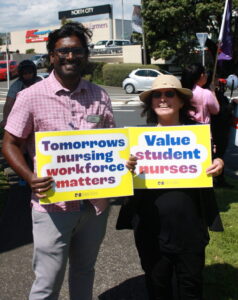
“We see them on placement five days a week, then they go and do another job. Where is the time for family? Where is the time for their children? Where is the time for their mental health?”
Rikihana also said despite Government claims they had enough nurses, hospital wards were so short-staffed, students were treated as “free mahi” rather than learning nursing skills.
The NZNO students also launched a petition on Saturday for the Government to support paid training, which had already gained 3781 of the 6000 signature goal by the end of the weekend.
A spokesperson for Minister of Health Shane Reti said while the minister was currently overseas, he was aware of the protests and “greatly values the hard work and dedication of student nurses across the country”.
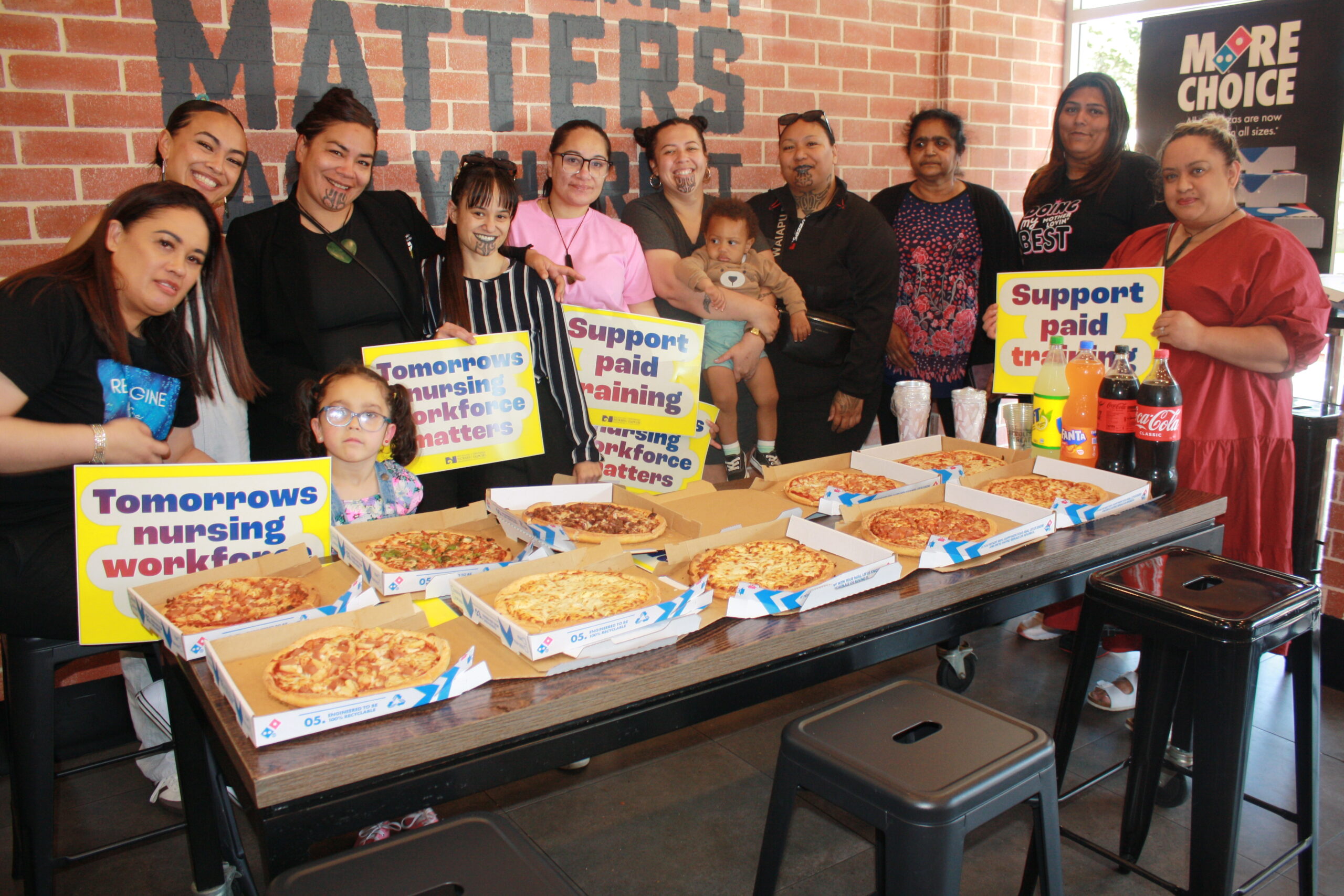
Te Whatu Ora director workforce planning John Snook said he acknowledged more needed to be done to support students training in health careers, but Nursing Council standards “do not allow for any paid hours worked to count towards clinical learning hours” unless in an emergency.
‘The standards were amended in 2024 to remove any barriers to students receiving financial support while undertaking any aspects of their study.’
“We are committed to continuing to work with the education sector, regulators, students and unions over the coming years to grow and strengthen our health workforce.”
Nursing Council ‘supportive’ of reducing student burden
However, Nursing Council chief executive Catherine Byrne said there was nothing in its current standards which would prevent ākonga/students receiving a stipend or other such financial support — in fact the council supported the idea.

“The standards were amended in 2024 to remove any barriers to students receiving financial support while undertaking any aspects of their study.”
While committed to protecting the quality of clinical learning experiences for students, she said the council was also “very aware of the financial challenges that student nurses currently face and support any initiatives that will reduce this burden”.
Standard 4.7 for enrolled and registered nurses requires ākonga/students to be placed in clinical learning environments which were already fully staffed, she said.
This was because clinical learning experiences cannot be undertaken in a clinical area where they are employed.
* This article was amended on October 22 to clarify Te Whatu Ora’s comment that only “paid hours” could not count towards students’ clinical learning — but this did not rule out other kinds of financial support.



